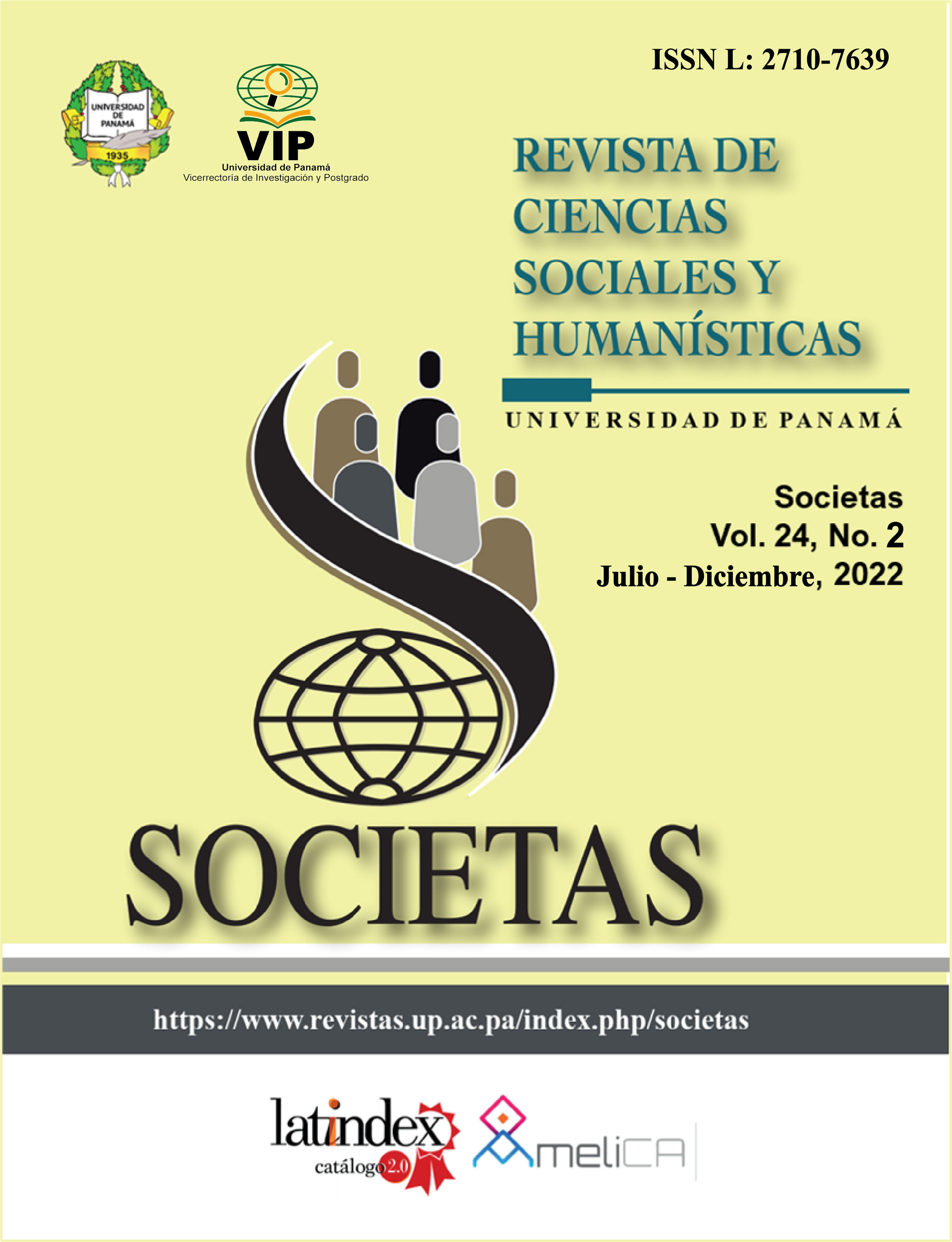References
Asamblea Nacional. (2008). Constitución de la República del Ecuador. Montecristi: Asamblea Nacional.
Constitución de la República del Ecuador. Montecristi: Asamblea Nacional.
Benavides, F. (2009). El Movimiento Estudiantil Universitario, parte esencial de la historia del pueblo Lojano. Revista Universitaria, 152-229.
Benito Gil, V. J. (2015). Las políticas públicas de Educación en Ecuador, como una de las manifestaciones e instrumentos del Plan Nacional para el Buen Vivir. Tesis inédita de Doctorado. Universidad de Alicante.
Beorlegui, C. (2010). Historia del pensamiento filosófico latinoamericano (Tercera ed.). Bilbao: Publicaciones Deusto. Obtenido de https://filosofiaum.files.wordpress.com/2014/06/beorlegui.pdf
Canal Encuentro. (15 de Septiembre de 2015). Ver la historia: 1966-1976. Tiempos violentos (capítulo 10) - Canal Encuentro HD [Archivo de Video]. Obtenido de https://www.youtube.com/watch?v=UB-mbR3anyw
Ceruti, H. (2002). Filosofía de la Liberación latinoamericana. Mexico: FCE: Fondo de Cultura Economica. Obtenido de https://bibliotecas.ups.edu.ec:2708/lib/bibliotecaupssp/reader.action?docID=4559908&query=salazar+bondy
Chavez Vaca, V. A. (2017). Enfoque Sociológico de los modelos de formación del profesorado universitario. SOPHIA(23), 141-159.
Dussel, E. (1994). Historia de la Filosofía y Filosofía de la liberacion. Bogotá: Nueva America. Obtenido de https://bibliotecas.ups.edu.ec:2708/lib/bibliotecaupssp/reader.action?docID=3189116&query=filosofia+politica+latinoamericana#
educacionsuperior.gob.ec. (2000-2010). Obtenido de Ley Orgánica de Educación Superior: https://www.educacionsuperior.gob.ec/wp-content/uploads/downloads/2015/03/LOES-2000.pdf
gobiernocalvas.gob.ec. (https://www.gobiernocalvas.gob.ec/phocadownloadpap/BaseLegal/Leyes/Constitucion-RO1-
11081998.pdf de agosto - octubre de 1998). Obtenido de Constitución Política de la República del Ecuador.
Guerra, S. (2016). ¿Por qué Filosofar Hoy? [En Línea]. Obtenido de Filosofos Ecuador: http://www.filosofiaecuador.org/guerrasamuel/
Guerra, S. (2016). Función de la Filosofía en Ecuador y en América Latina [En Línea]. Obtenido de Filosofos Ecuador: http://www.filosofiaecuador.org/guerrasamuel/
Hernández, D. (2004). Paradigma emancipatorio latinoamericano. En Autonomía integradora y transformación social : el desafío ético emancipatorio de la complejidad. La Habana: CIPS, Centro de Investigaciones Psicológicas y Sociológicas. Recuperado el 01 de Septiembre de 2016, de http://biblioteca.clacso.edu.ar/Cuba/cips/20120822104055/Iparadigma.pdf
Luna, M. (2014). LAS POLÍTICAS EDUCATIVAS EN EL ECUADOR, 1950-2010: Las acciones del Estado y las iniciativas de la sociedad.
MEC, M. d. (2016). Hacia el plan Decenal de Educacion 2006-2015.
Medina, J. (1967). Filosofía, Educación y Desarrollo. México: Siglo XXI Editores.
Meza Bolaños, R. (2006-2007). Realidad Nacional. Quito: EDICIEM.
Pacheco Olea, L. A., & Pacheco Mendoza, R. (abril - junio de 2015). Evolucion de la Educación Superior en el Ecuador. La Revolucion Educativa de la Universidad Ecuatoriana. Pacarina del Sur. Revista del pensamiento Crítico Latinoamericano [En línea], 6(23). Obtenido de http://www.pacarinadelsur.com/home/amautas-y-horizontes/1128-evolucion-de-la-educacion-superior-en-el-ecuador-la-revolucion-educativa-de-la-universidad-ecuatoriana
Paz, O. (1967). La Revelación Poética. En O. Paz, Obras Completas: La Casa de la Presencia (págs. 50-72). México: Comente alterna: Siglo XXI. Obtenido de http://ciudadanoaustral.org/biblioteca/14.-Octavio-Paz-Obras-Completas-La-Casa-de-la-Presencia.pdf
Paz, O. (1998). El Laberinto de la Soledad. México: Fondo de Cultura Económica. Obtenido de https://cucjonline.com/biblioteca/files/original/33062125177f1cf514bd6812332c7b1b.pdf
Puiggros, A. (2001). Educación y poder: los desafíos del próximo siglo. En C. A. Torres, Paulo Freire y la agenda de la educación latinoamericana en el siglo XXI (págs. 9 - 22). Buenos Aires: CLACSO, Consejo Latinoamericano de Ciencias Sociales. Obtenido de http://bibliotecavirtual.clacso.org.ar/clacso/gt/20101010030942/1puiggros.pdf
Reyes, D. (2007). Las Políticas Educativas en la Reflexión Filosófica. Sophia, Colección de Filosofía de la Educación(3), 11-32.
Rodríguez, H., Bentancourt, M., & Varas, R. (2018). La episteme neoliberaly la repolitizacion estudiantil emancipatoria en Brasil y Chile. SOPHIA(25), 259 - 286.
Scannone, J. C. (2009). La filosofía de la liberación: historia, características, vigencia actual. Teología y Vida, 59-73.
Torres Carrillo, A. (2007). Paulo Freire y La Educación Popular. Revista EAD: Educación de Adultos y Desarrollo. Recuperado el 09 de Septiembre de 2016, de https://www.dvv-international.de/es/educacion-de-adultos-y-desarrollo/ediciones/ead-692007/el-decimo-aniversario-de-la-muerte-de-paulo-freire/paulo-freire-y-la-educacion-popular/
Venegas Guzmán, H. (2019). Cuaderno del Contrato Social por la Educación - Ecuador. Quito: Contrato Social por la Educación. Obtenido de CSE, Contrato Social por la Educación Ecuador.
Willington Germano, J. (2001). Mercado, universidade, instrumentalidade. En C. A. Torres, Paulo Freire y la agenda de la educación latinoamericana en el siglo XXI (págs. 225 - 237). Buenos Aires: CLACSO, Consejo Latinoamericano de Ciencias Sociales. Obtenido de http://biblioteca.clacso.edu.ar/clacso/gt/20101010030536/torres.pdf

